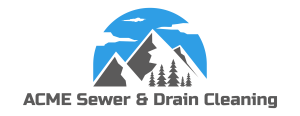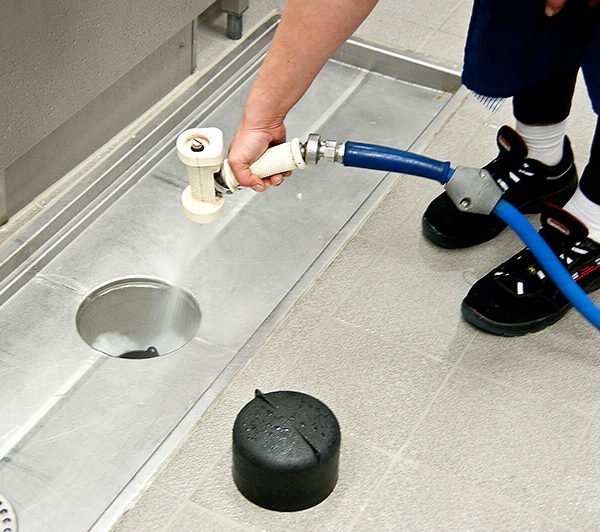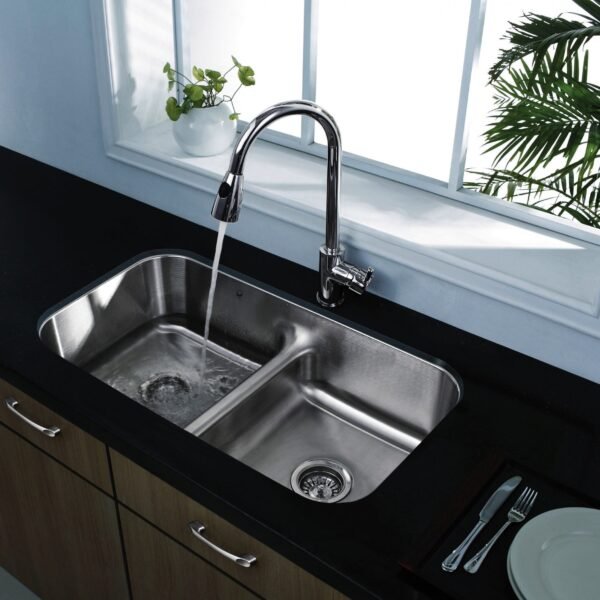Maintaining free-flowing drains is a critical aspect of keeping your home’s plumbing system in check. Clogged drains can lead to a host of issues, including slow water drainage, flooding, sewage backup, and expensive repairs. Fortunately, with some expert tips and consistent maintenance, you can prevent most clogs and ensure your drains stay clear. This article will explore several effective strategies to help you maintain your drains and avoid the hassle of persistent clogs.
Key Takeaways
- Brushing your hair before showering and using drain guards can significantly reduce hair-related clogs.
- Adopting a regular drain cleaning schedule and using eco-friendly solutions helps maintain clear drains without harsh chemicals.
- Proper disposal of kitchen waste, using cold water flushes for disposals, and routine leak checks are proactive measures to prevent clogs.
- Understanding the common causes of clogs and knowing when to use a drain snake or call professionals are key to addressing persistent issues.
- A two-pronged approach of active prevention and regular maintenance is essential for long-term clog-free drains and plumbing health.
Strategies for Preventing Hair-Related Drain Clogs

Brush Your Hair Before Showering
One of the simplest preventative measures to avoid hair-related clogs is to brush your hair before showering. This routine action can significantly reduce the amount of hair that ends up in your drain. When loose hairs are removed prior to bathing, they are less likely to contribute to a blockage.
By incorporating this habit into your daily routine, you not only protect your drains but also maintain a cleaner and more hygienic shower space.
It’s important to note that while this method is helpful, it should be part of a broader strategy for drain maintenance. For instance, using drain covers or strainers in conjunction with brushing your hair can provide a more comprehensive defense against clogs. Here’s a quick list of related tips:
- Use a hair catcher to trap hair before it enters the drain.
- Regularly clean drain covers to ensure their effectiveness.
- Consider natural remedies like baking soda and vinegar for maintenance.
- Schedule routine drain snaking to clear any hairs that may have bypassed covers.
Install Drain Guards and Strainers
Installing drain guards and strainers is a straightforward yet effective method to prevent hair and other debris from causing clogs. These devices serve as a physical barrier, trapping unwanted materials while allowing water to flow freely.
For optimal results, choose a drain protector that fits snugly over your drain. For instance, the SlipX Solutions Stop-A-Clog Drain Protectors are designed to fit over flat and open shower and tub drains, with a 3 inch inner diameter and 5.25 inch outer diameter, effectively trapping hair to prevent drain clogs.
It’s essential to regularly clean these guards and strainers to ensure they continue to function effectively. Neglecting this simple maintenance task can lead to reduced water flow and eventual blockages.
Here are some additional tips for using drain guards and strainers effectively:
- Select a guard that matches the size and shape of your drain.
- Ensure easy removal for cleaning; some models come with handles.
- Consider materials that resist mold and mildew for longer-lasting use.
Regularly Inspect and Clean Drain Stoppers
Maintaining your drains involves a simple yet crucial task: regular inspection and cleaning of drain stoppers. About once every two weeks, as part of your bathroom cleaning routine, remove the stoppers from your sinks to check for buildup. It’s common to find a combination of wet hair, soap scum, and natural debris such as skin cells and dirt. To ensure a thorough cleaning, use a toothbrush and a cleaning agent to scrub the stopper clean.
Regular maintenance and proper disposal of grease are fundamental in keeping your drains clear and functional.
In addition to home cleaning, consider adopting a structured maintenance schedule for your drains:
- Clean Drain with Vinegar & Baking Soda: Weekly
- Use Drain Snake: Monthly
- Professional Drain Cleaning: Annually/As Needed
Professional plumbers have the expertise and tools necessary for deep cleaning, which can prevent clogs from forming. By integrating these practices into your routine, you contribute to the long-term health of your plumbing system.
Routine Maintenance to Keep Drains Flowing

Adopt a Drain Cleaning Schedule
Maintaining a regular drain cleaning schedule is essential for preventing clogs and ensuring the longevity of your plumbing system. Implementing a simple weekly routine can make a significant difference in avoiding the buildup of hair and other debris. For instance, a combination of vinegar and baking soda can be used on a weekly basis to keep drains clear.
Investing time in weekly drain cleaning and maintenance can save you time, money, and the headache of dealing with stubborn clogs.
On a monthly basis, using a drain snake can help to dislodge any accumulations that have bypassed your weekly cleaning efforts. For a more comprehensive clean, it is advisable to schedule professional drain cleaning services annually or as needed, depending on the usage and condition of your drains. The table below outlines a recommended maintenance schedule:
| Action | Frequency |
|---|---|
| Clean Drain with Vinegar & Baking Soda | Weekly |
| Use Drain Snake | Monthly |
| Professional Drain Cleaning | Annually/As Needed |
Remember, while DIY solutions can be effective for minor clogs, persistent issues may require the expertise and tools of a professional plumber. Regularly scheduled professional cleanings can also be a proactive step towards maintaining a clog-free drain.
Use Eco-Friendly Cleaning Solutions
Incorporating eco-friendly cleaning solutions into your routine maintenance can have a significant impact on both your plumbing and the environment. These solutions utilize natural enzymes to effectively break down organic materials such as grease and oil, which are common culprits of drain clogs. Unlike harsh chemical cleaners, enzyme-based cleaners are gentle on pipes and do not contribute to environmental pollution.
Regular maintenance of drains is not only crucial for preventing clogs but also for ensuring the longevity of your plumbing system. By using eco-friendly products, you are taking a step towards protecting local ecosystems and avoiding the introduction of harmful substances into your home.
Here are some tips for using eco-friendly cleaning solutions:
- Opt for Enzyme-Based Cleaners: These cleaners work by breaking down organic waste without damaging your pipes or the environment.
- Dispose of Waste Properly: Prevent clogs by throwing coffee grounds, eggshells, and starchy foods in the trash, not the disposal.
- Adopt Drain Screens and Strainers: They are simple yet effective in catching debris before it causes blockages.
- Schedule Regular Maintenance: This small investment can prevent the inconvenience and cost of dealing with severe clogs.
Professional Drain Cleaning Services
While regular home maintenance can go a long way in keeping your drains clear, sometimes the expertise of a professional is required. Professional drain cleaning services are essential for deep cleaning and addressing issues that typical home remedies cannot resolve. These services often include the use of specialized tools and techniques, such as drain cleaning salt, to effectively break down and remove stubborn clogs.
Professional services not only address immediate clog issues but also help in preventing future problems. For instance, ACME Sewer & Drain Cleaning offers comprehensive maintenance services for commercial restrooms, ensuring a sanitary environment. Similarly, Bell’s plumbing services in Lakewood handle all types of drain cleaning, tailored to treat your particular clog properly.
It’s important to recognize when DIY solutions are no longer effective and to seek professional help. Regular professional maintenance can save you from the inconvenience and costs associated with severe drain clogs.
Proactive Measures to Avoid Drain Clogs

Proper Disposal of Kitchen Waste
Ensuring the longevity and efficiency of your kitchen drains starts with proper waste disposal habits. Many common kitchen items can lead to stubborn clogs if not disposed of correctly. Here are some key points to remember:
- Never flush grease, oil, or coffee grounds down the drain. These substances can coat the inside of your pipes and lead to blockages.
- Scrape off plates into the trash before washing them. Leftover foods should not go down the drain, even with a garbage disposal.
- Use cold water when running your garbage disposal. This helps keep fats solid and allows the disposal to break them up more effectively.
It’s essential to be mindful of what goes down your kitchen sink. Simple changes in disposal habits can prevent the majority of drain clogs.
Remember, even if you have a garbage disposal, it’s not designed to handle all types of kitchen waste. Items like bones, meat, grains, and eggshells can be particularly problematic. Dispose of these in the trash or compost them if possible. For a comprehensive list of items to avoid, consider referencing a guide such as ’15 Things You Should Never Put Down Your Garbage Disposal’.
Cold Water Flush Technique for Disposals
The cold water flush technique is a simple yet effective method to ensure the longevity and proper functioning of your garbage disposal. When using your disposal, it’s crucial to run a steady stream of cold water. This practice prevents the liquefaction of grease and other substances, which can lead to clogs.
To implement this technique, follow these steps:
- Before turning on the disposal, let cold water run for a couple of seconds.
- Continue running the cold water while the disposal is in use.
- After disposing of waste, allow the water to run for a few more seconds to ensure all particles are flushed through.
Periodically, you can also throw ice into the disposal to aid in cleaning the blades and removing any residual waste.
Remember, using hot water while operating the disposal can cause grease to melt and accumulate, creating blockages not just in the disposal but further down the drain line. Consistent use of cold water helps maintain a clog-free disposal system.
The Importance of Regular Leak Checks
Regular leak checks are a critical component of drain maintenance, helping to identify potential problems early on. Leaks and backups can lead to scenarios that are hazardous to your health, such as mold growth from water leaks or the dangers posed by sewage backups. By conducting routine inspections, homeowners can detect small leaks or cracks before they escalate into major issues, saving both money and the inconvenience of emergency repairs.
Regular maintenance is not just about preventing blockages; it’s about ensuring the overall health of your plumbing system.
To effectively check for leaks, follow these steps:
- Inspect visible pipes, faucets, and fixtures for signs of leaks or water damage.
- Address any leaks immediately to prevent water waste and structural damage.
- Test sump pumps and backup systems to ensure they are functioning properly.
Adopting a comprehensive approach to drain maintenance, including regular leak checks, is essential for the longevity of your plumbing infrastructure and the prevention of costly repairs.
Understanding and Addressing Persistent Clogs

Identifying Common Causes of Clogs
Understanding the common causes of drain clogs is crucial for effective prevention and maintenance. One of the primary culprits behind bathroom drain clogs is hair buildup. Over time, hair strands can accumulate in shower and bathtub drains, combining with other substances to create stubborn blockages.
Consistent steps and awareness are key in preventing clogs. By identifying what commonly contributes to these blockages, homeowners can take proactive measures to maintain clear drains.
Here are some of the most frequent contributors to drain clogs:
- Loose strands from washing or brushing
- Oil and soap residues
- Pet hair
- Mineral build-up from hard water
Each of these factors can contribute to the gradual development of clogs, which, if left unaddressed, may lead to more significant and costly issues.
When to Use a Drain Snake
A drain snake, also known as a plumbing auger, is a tool designed for dislodging clogs that are too stubborn for simple plunging. When you encounter a clog that resists initial efforts, it’s time to consider using a drain snake. This tool is particularly effective for rooting a main sewer line, which can become blocked by an accumulation of debris or tree roots. Sewer main blockage is a serious issue that can lead to extensive damage if not addressed promptly.
While a drain snake can be used for DIY and professional drain clearing, it’s important to weigh safety considerations and the cost-benefit analysis of attempting to clear a clog yourself versus hiring a professional. For instance, renting a Roto-Rooter might be necessary for particularly tough clogs.
Regular maintenance is crucial for the health of your plumbing system. Here’s a simple schedule to follow:
- Clean Drain with Vinegar & Baking Soda: Weekly
- Use Drain Snake: Monthly
- Professional Drain Cleaning: Annually/As Needed
Adhering to this schedule can help prevent the need for more drastic measures, such as rooting a main sewer line.
When to Call in the Professionals
While many clogs can be resolved with do-it-yourself methods, there are times when professional intervention is necessary. If you’ve tried multiple methods without success, or if clogs recur frequently, it’s time to seek expert assistance. Persistent clogs may signal deeper issues within your plumbing system that require specialized tools and knowledge to address.
Investing in professional attention at regular intervals can prevent costly repairs and the inconvenience of unexpected plumbing failures. By having experts on call, you ensure that your plumbing is maintained in optimal condition.
Professionals offer services such as drain rooting and jetting, which are tailored to the specific needs of your property. Understanding when to utilize these services can save both time and money. If you’re unsure about the severity of your drain issues, don’t hesitate to reach out for advice. Remember, it’s much easier to prevent a clog than to resolve one. For immediate assistance, Call: 801-930-8000.
Comprehensive Guide to Clog-Free Drains

The Two-Pronged Approach: Prevention and Maintenance
To ensure the longevity and efficiency of your plumbing, adopting a two-pronged approach is essential. This involves active prevention strategies coupled with regular maintenance routines. By doing so, you not only prevent inconvenient blockages but also protect the overall health of your plumbing systems.
- Prevention: Start by minimizing the introduction of solids and debris into your drains. Use garbage cans and trash compactors effectively, and encourage proper waste disposal habits. Implementing recycling programs and avoiding the disposal of hazardous chemicals are also key.
- Maintenance: Regularly remove visible hair and debris, clean drains with appropriate cleaners, and schedule professional inspections at least annually. This routine maintenance can extend the lifespan of your plumbing and provide budget predictability.
By integrating these steps into your home or business maintenance routine, you can significantly reduce the likelihood of stubborn clogs and ensure smooth water flow throughout your plumbing infrastructure.
The Role of Consistent Homeowner Action
The key to maintaining a clog-free drainage system lies in the consistent actions taken by homeowners. Regular check-ups can identify potential problems, such as small leaks or cracks, before they escalate into significant issues that require extensive intervention. This proactive approach not only saves money but also avoids the inconvenience of dealing with emergency plumbing situations.
- Implement a regular cleaning schedule
- Use eco-friendly cleaning solutions
- Conduct regular leak checks
By investing in regular drain maintenance, homeowners can enjoy the benefits of a fully functional plumbing system, reducing the likelihood of emergency repairs and costly water damage.
Choosing between DIY drain clearing and professional plumbing services is crucial for an efficient and compliant system. Consider costs, skills, safety, and long-term effectiveness to make informed decisions. For those inclined towards natural solutions, consider using DIY natural cleaners like a mixture of baking soda and vinegar to keep your drains fresh and clear.
Long-Term Benefits of Clog Prevention
Investing in regular drain cleaning services goes beyond the immediate relief from clogs. Regular drain unclogging removes potential hazards and promotes a cleaner, healthier living environment. It’s not just about avoiding the inconvenience of blockages; it’s about maintaining the overall health of your plumbing systems.
By preventing blockages, you also reduce the risk of unpleasant odors and the accumulation of harmful bacteria that can arise from stagnant water.
Enhancing water flow efficiency is another significant benefit. Clear drains mean that water can flow freely, which in turn extends the lifespan of your plumbing infrastructure and safeguards against leaks and potential water damage to your property. A routine maintenance schedule for your drains can significantly contribute to these long-term benefits.
Remember, an ounce of prevention is worth a pound of cure. By integrating consistent steps into your home maintenance routine, such as regular removal of visible hair accumulation, using drain guards, and scheduling professional cleaning services, you ensure the longevity and reliability of your drainage system.
Concluding Remarks
In conclusion, maintaining your drains and preventing clogs is an essential aspect of household upkeep that should not be overlooked. By adopting a proactive approach to drain care, including regular inspections, cleaning, and the use of preventive measures such as drain guards, you can ensure that your plumbing system remains in top condition. Remember, the key to a clog-free drain is consistent maintenance and being mindful of what goes down your pipes. Implementing the expert tips and strategies discussed in this article will help you avoid the inconvenience and expense of clogged drains. Keep in mind that while many issues can be handled with DIY solutions, for persistent or complex problems, don’t hesitate to seek professional assistance from services like Acme Sewer, the drain cleaning specialists in Salt Lake City. Stay vigilant, and enjoy the peace of mind that comes with a well-maintained drainage system.
Frequently Asked Questions
How can I prevent hair from clogging my drain?
To prevent hair clogs, brush your hair before showering, use drain guards or strainers to catch hair, and regularly clean out any accumulated hair from drain stoppers.
What routine maintenance can I perform to keep my drains clear?
Maintain a regular cleaning schedule for your drains, use eco-friendly cleaning solutions to avoid harsh chemicals, and consider hiring professional drain cleaning services annually.
What are some proactive measures to avoid drain clogs?
Properly dispose of kitchen waste instead of flushing it down the sink, use the cold water flush technique when using garbage disposals, and regularly check for leaks in your plumbing system.
What should I do if I have a persistent clog?
Identify common causes of clogs, try using a drain snake to clear the blockage, or call in professional plumbers if the clog persists and you’re unable to resolve it yourself.
What are the long-term benefits of preventing drain clogs?
Preventing drain clogs can save you from future plumbing headaches, costly repairs, and can extend the lifespan of your plumbing system by ensuring smooth water flow.
What is the two-pronged approach to maintaining clog-free drains?
The two-pronged approach involves active prevention, such as using drain guards and brushing your hair before showering, and regular maintenance, including routine cleaning and professional inspections.




